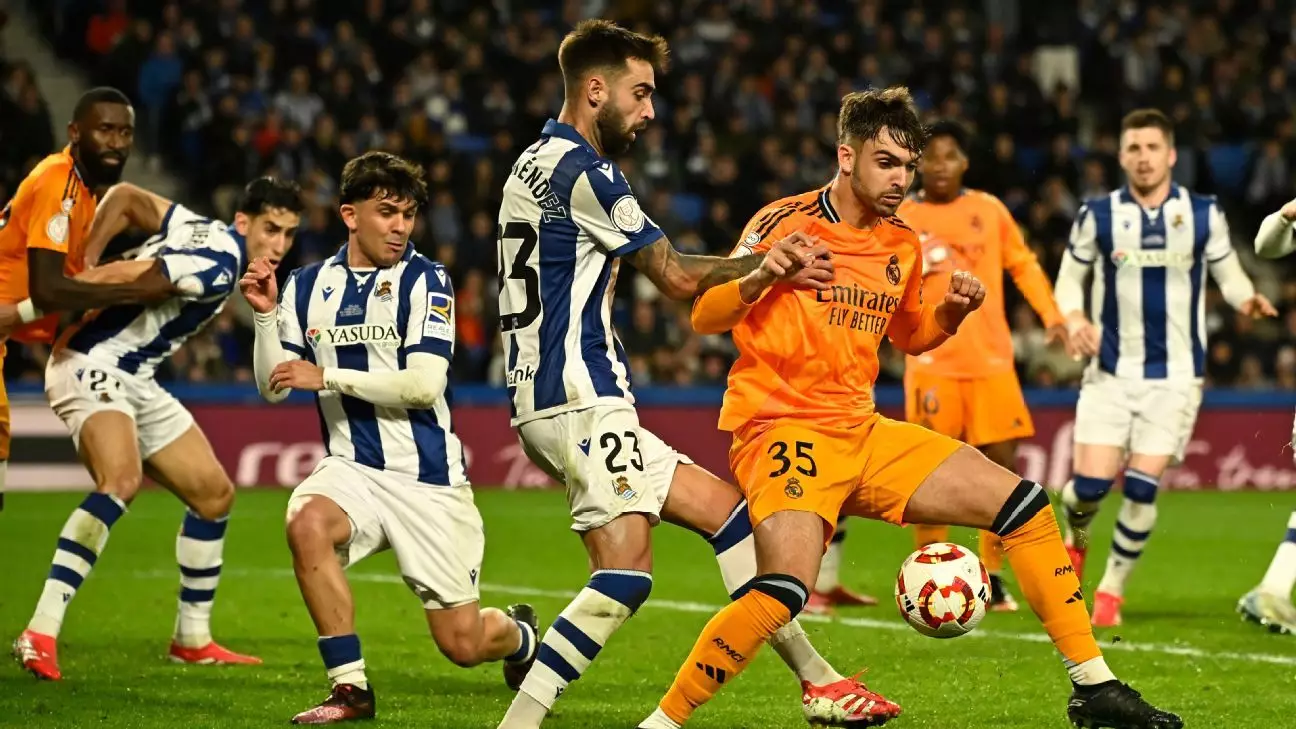In what should have been a thrilling match for Real Madrid fans, a dark incident overshadowed the excitement during the Copa del Rey semifinal against Real Sociedad. The game was halted just before halftime due to alarming chants directed towards Madrid defender Raúl Asencio, with the crowd reportedly shouting, “Asencio, die.” This incident brought to light the ongoing issues of racism and intolerance in football stadiums, a concern that reverberates beyond the sport itself. The protocols for addressing such behavior were put into action when Real Madrid’s captain, Vinícius Júnior, alerted the referee about the chants, prompting an immediate suspension to ensure the safety and dignity of all players on the pitch.
The swift action taken by the referee underscores the importance of having a structured response to such incidents. Spain’s anti-hate protocol kicked in, displaying a decisive message on the stadium’s big screens, urging fans to support the team while respecting players from both sides. The statement read, “No to racist, xenophobic, or intolerant chants. Support the team, respecting the opponent,” and served as a timely reminder to the crowd about the values the sport should embody. However, adherence to these protocols in real situations must be taken seriously, as incidents of hate speech compromise the integrity of sporting events.
This incident unfolds against a backdrop of legal intrigue regarding Asencio, who is entangled in serious allegations related to a sexually explicit video involving a minor. As the legal process proceeds, many questions surface about how personal controversies impact athletes on the field. The gravity of such accusations adds unnecessary pressure on players like Asencio, who must navigate the dual challenges of public scrutiny and performance expectations. His substitution at halftime by coach Carlo Ancelotti was partly due to his emotional state, further highlighting the personal toll that such incidents can take.
Following the interlude, the responses from both teams speak volumes about how sports can foster solidarity against hate. Real Sociedad’s captain, Mikel Oyarzabal, made it clear that such insults are not acceptable in any arena, stating that there are more appropriate ways to address grievances. Similarly, Sociedad’s coach, Imanol Alguacil, echoed these sentiments, reinforcing the overall consensus that stadiums should be spaces for positive support rather than hostility.
Raúl Asencio, despite the controversy surrounding him, is finding his footing in a high-stakes environment, having made his first-team debut during a defensive crisis last November. His journey symbolizes not only personal growth but also the ongoing struggle of young athletes to overcome external pressures. As society wrestles with issues of discrimination and injustice, it becomes imperative that football—wealthy in heritage and influence—stands as a beacon of respect and unity. Each match presents an opportunity for growth, learning, and an affirmation that love for the game far outweighs hate.
As we continue to watch and engage with football, let us take these moments as critical reminders of our collective responsibility to challenge intolerance, ensuring that the essence of sports endures in its most noble form.

